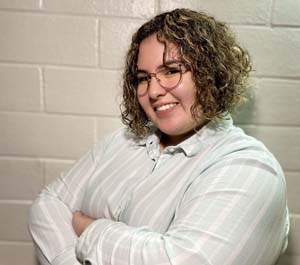Gov’t breaks down use of $33.7M ARPA funds for cultural programs

Some $33.7 million in funds from the American Rescue Plan will be used to promote several programs of institutions as well as to restore and maintain historic buildings, Gov. Pedro Pierluisi confirmed.
That money will be supplemented with other funds allocated by the Federal Emergency Management Agency and will also be used for programmatic activities and competitive grants, digitizing documents, preserving historical artifacts, and promoting the orange economy, he said.
This second phase allocates $3.5 million for maintenance, improvement, resilience and restoration projects for 39 properties of the Institute of Puerto Rican Culture.
Another $1.1 million will go toward improvements to the Francisco Arriví and Victoria Espinosa theaters, which include works to provide high-speed internet, purchase new energy-efficient equipment, lighting, infrastructure modernization, and purchase of generators.
Some $6 million will be used to make improvements to the Convento Los Dominicos, the Casa Opis, the Antiguo Edificio of the Cámara de Comercio of the Distrito Cultural of Bayamón, the Casilla del Caminero, and the Fortín San Jerónimo.
“In the Centro de Bellas Artes we will invest $1 million for improvements in the parking lot and to start replacing seats in the event halls,” said Pierluisi.
“Meanwhile, we will give $2 million to the Escuela de Artes Plásticas y Diseño for maintenance, painting, and improvement projects in that historic building,” added Pierluisi.
Another $2 million will be allocated for the restoration, improvement, and maintenance of the Music Conservatory, as well as for the repair of instruments, purchase of new equipment and security systems.
Another $2.3 million will go toward the renovation and construction of the State Historic Preservation Office, as well as for a three-dimensional projection show and for the digitization of archaeological archives.
Another $2 million have been allocated for restoration, digitization of more than 100,000 historical documents, archaeological effects, built heritage, museums, parks, publications, among others.
To create the Puerto Rico Digital Library, $1.2 million are being earmarked over three years. The project will include a selection of public domain publications and is intended to work on 700 books a year for a total of 2,100 books during that time.
Another $500,000 will be allocated for the digitization of historical documents from the Spanish state archives related to the island to provide access from the platform of the General Archive of Puerto Rico.
An additional $500,000 will be for the digitization of documents from the United States National Archives related to Puerto Rican affairs.
The Popular Arts Depository will receive $150,000 for its relocation and conservation, $150,000 to monitor the Native Music Act, and $300,000 for the Banda Concierto, for the performance of 35 concerts throughout Puerto Rico.
The Puerto Rico General Archive will receive $450,000, more than $1 million will go to the Polygraphic Triennial, an art exhibition activity, forums, and seminars in Latin America, and $500,000 for cultural factories that develop workshops and training to achieve a cultural district.
“We will also give a $3 million grant for the operational expenses of museums that have been affected by the pandemic, such as the Puerto Rico Museum of Art, the Ponce Museum of Art, the Museum of Contemporary Art and the Museum of Las Americas, and $1 million for digitization initiatives, purchase of materials and equipment for the Musical Arts Corporation and the Puerto Rico Symphony Orchestra,” said Pierluisi.
Lastly, $3 million has been set aside to provide 60 to 80 grants and operating expense reimbursements to nonprofit arts and cultural organizations.









